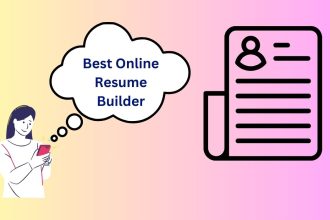Navigating the Challenges of the UK Job Market: A Young Professional’s Perspective
The pursuit of a fulfilling career can often feel like an uphill battle, especially within the UK job market, where the demand for “experts” seems to overshadow opportunities for budding professionals. As someone who is about to turn 22, I find myself at a crossroads, possessing a wealth of skills yet facing numerous hurdles in securing employment.
The Quest for Expertise
In today’s competitive job landscape, the demand for experienced candidates is pervasive across industries. Whether you’re aspiring to be a programmer, a marketing executive, or a salesperson, the mantra seems to be “experience, experience, experience.” For those of us just starting out, these criteria can feel daunting.
Over the past few years, I have accumulated a broad array of skills in areas like marketing, web development (including JavaScript, React, Next.js, and Vue.js), SEO, digital design, UI/UX, photography, videography, and much more. While much of this learning occurred on the job, a significant portion was honed through online courses and personal projects.
The Reality of Relocation
Moving to London has been a personal necessity, yet finding employment here without a degree—or a lengthy record of professional experience—proves challenging. The financial strain of living in London, compounded by the inaccessibility of apprenticeships due to cost, only adds to the frustration.
I have invested three months and applied to over 60 jobs in London, confident in my ability to contribute meaningfully. Unfortunately, the responses I have received only highlight the fierce competition for each role.
A Vision for the Future
Reflecting on my current predicament, I can understand a company’s hesitation to hire someone without extensive experience. If I were in a position to make hiring decisions, I would aim to strike a balance by pairing seasoned experts with ambitious newcomers eager to learn and grow within their chosen fields.
Despite the challenges, I remain hopeful and committed to my professional development, continually seeking feedback and improvement. For those who can relate to this journey, I hope this resonates and perhaps offers some solace.
Thank you for taking the time to read my reflections. Feel free to share your thoughts or experiences in navigating the modern job market.
*(P.S. For those curious about my “abundance of skills,” my intention was to outline the diverse areas I have explored both professionally and personally. While I may not be a master in any one area, my curiosity and










3 Comments
Thank you for sharing your experiences and frustrations with the current UK job market. It’s clear that you’re navigating a challenging path, and it’s commendable that you’re actively seeking solutions rather than simply feeling disheartened by the situation.
The expectation for candidates to have extensive experience is indeed a common barrier, particularly in competitive markets like London. However, there are some pragmatic approaches you can consider to enhance your job search and potentially bridge that challenging gap between your skills and the market demands.
Highlight Transferable Skills: Although you might not have formal experience in every area, your diverse skill set—ranging from web development to digital marketing—is valuable. Focus on these skills in your applications, emphasizing how they can benefit potential employers. Tailor your CV and cover letters to highlight skills that are directly relevant to each job description.
Build a Portfolio: Since you have experience in marketing, web development, and digital design, consider creating an online portfolio that showcases your projects. This can provide tangible evidence of your capabilities and demonstrate your passion and dedication to prospective employers.
Networking and Mentorship: Engage with professional communities both on and offline. Platforms like LinkedIn are great for connecting with industry professionals who could provide advice, mentorship, or even leads on job opportunities. Attend meetups, industry conferences, or workshops where you can meet professionals in your desired field.
Freelancing and Projects: Consider taking up freelance projects or internships that align with your career goals. While these may not be long-term solutions, they can provide you with additional experience and expand your professional network. Websites like Upwork, Fiverr, or even project-based roles found on Indeed or Glassdoor could be starting points.
Continuous Learning: While you have already completed online courses, continue learning to stay updated with the latest trends and tools in your fields of interest. This could also include earning certifications that might enhance your credentials.
Alternative Entry Points: Sometimes, opportunities lie in roles that are adjacent to your ideal job. Starting in a different but related position within a company can be a strategic way to demonstrate your skills and eventually move to the role you desire.
Feedback and Improvement: If possible, seek feedback on your applications and interviews. Constructive criticism from hiring managers or mentors can provide insight into how you might improve future applications.
Your idea of employing and nurturing ambitious individuals alongside experts is a powerful one. It highlights the importance of growth and mentorship in professional roles, something
Thank you for sharing your candid reflections on the challenges faced by young professionals in the UK job market. Your experience resonates with many who are navigating similar hurdles, especially in such a competitive environment.
I’d like to add that, while the journey seems daunting, there are several strategies one can consider to enhance employability and bridge the experience gap. Networking plays a crucial role—engaging with professional communities, attending meetups, or even participating in online forums can expose you to opportunities that may not be publicly advertised. Additionally, seeking mentorship from industry professionals can provide invaluable insights and potential job leads.
Furthermore, consider focusing on building a strong personal brand. Showcasing your projects and skills on platforms like GitHub, LinkedIn, or a personal portfolio website can highlight your capabilities and dedication to potential employers. Projects that demonstrate your expertise in real-world scenarios can sometimes speak louder than formal experience.
Lastly, while it may feel frustrating to apply to numerous roles with little feedback, consider tailoring your applications to reflect the specific needs of each company. Researching their values and projects can help you frame your skills in a way that aligns with their goals.
Stay resilient and keep leveraging your diverse skill set—your eagerness to learn and adapt is a quality that many employers appreciate. Wishing you all the best in your job search!
Thank you for sharing such an honest and reflective perspective on the challenges faced by young professionals in the UK job market. Your diverse skill set and proactive approach—combining online learning, personal projects, and real-world experience—are commendable and often underappreciated by traditional hiring practices that overly emphasize experience.
One strategy worth considering is leveraging freelance or contract work, which can help build a more tangible portfolio and demonstrate your capabilities to potential employers. Additionally, engaging with industry communities, attending networking events, or seeking mentorship opportunities might open doors that traditional job applications overlook.
It’s also encouraging to see your belief in pairing emerging talent with experienced professionals—many companies are increasingly recognizing the value of nurturing ambitious newcomers with fresh perspectives. Keep refining your skills, stay resilient, and remember that persistence often pays off. The future belongs to those who continually adapt and seek growth despite obstacles. Best of luck on your journey!